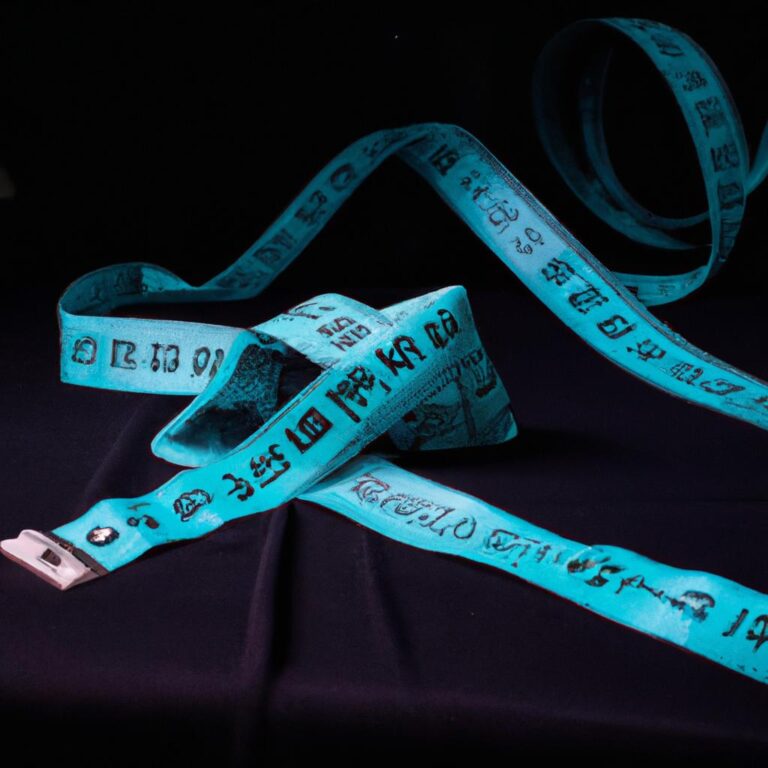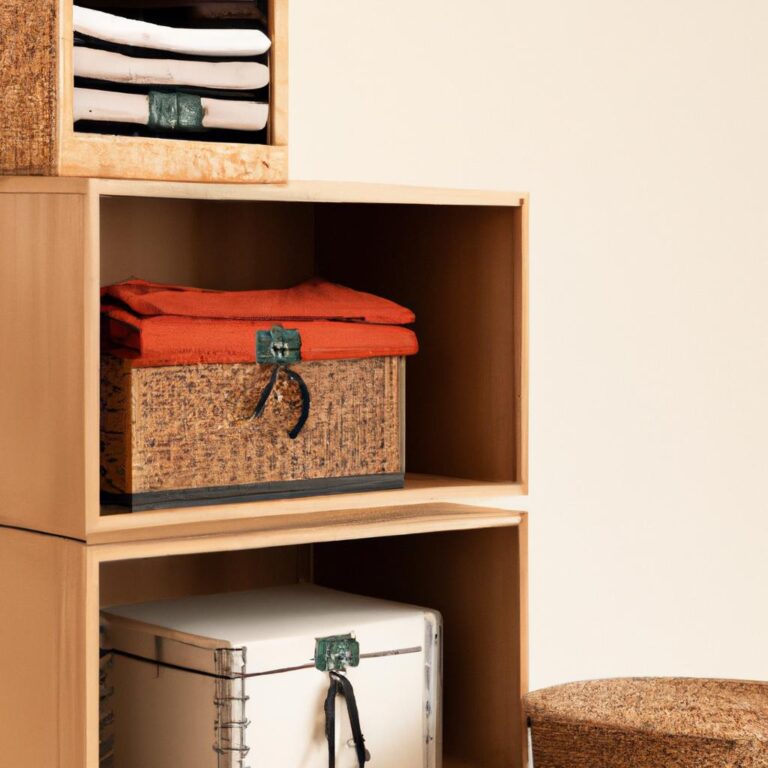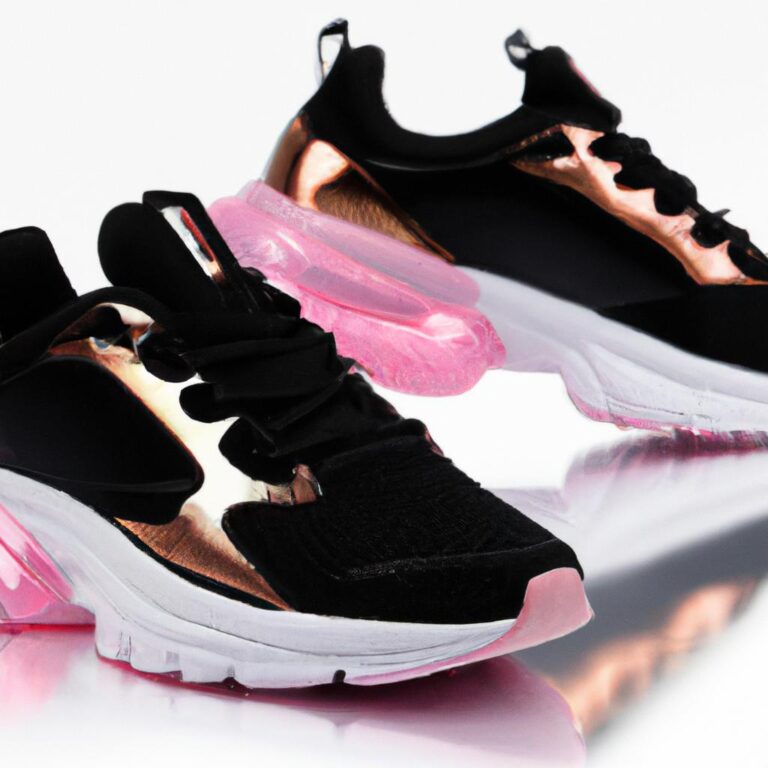
What is ethical and sustainable fashion?
Ethical and sustainable fashion is a growing trend in the fashion industry that ensures clothing is produced in an environmentally and socially conscious way. It covers a range of practices, including avoiding the use of hazardous chemicals in production, using materials from renewable sources, paying fair wages to employees, and sourcing materials and products from local suppliers. Ethical and sustainable fashion also takes into consideration the importance of minimizing waste, reusing materials, and ensuring long-term sustainability of resources.
The fashion industry is one of the most polluting industries in the world. By embracing sustainability practices, ethical and sustainable fashion can help reduce its impact on the environment and provide better opportunities to workers by improving their wages and working conditions.
Why is ethical and sustainable fashion important?
More and more consumers are becoming aware that their shopping habits have an impact on the environment and society. As such, they’re looking for ways to shop responsibly and be part of the solution, not the problem. Ethical and sustainable fashion is becoming increasingly popular as it provides the opportunity to do just that. It’s a chance for us to make more meaningful choices and build a more sustainable future.
Ultimately, choosing ethical and sustainable fashion is making a commitment to being part of a global movement that works towards creating a better world. It’s a way to show that we care about the people who make our clothes, the places where they’re made, and the planet that we all share.
Overview of Why Ethical and Sustainable Fashion is Popular
Over the last few years, ethical and sustainable fashion has become increasingly popular. Consumers have started to realize that their clothing choices have real-world implications, both in terms of environmental impact and labor practices.
Social media campaigns and increased consumer awareness have led to more people wanting to make conscious decisions about their fashion purchases. Consumers are now looking to find brands that produce clothes in a way that is both ethical and sustainable for the environment.
As more people become aware of the negative impacts of fast fashion, they are looking for alternatives that promote sustainability and ethic labor practices. Consumers want to purchase clothing from brands that use environmentally friendly materials such as organic cotton, hemp, or recycled fibers.
The need to reduce environmental impact and prioritize better labor practices has led to a huge growth in conscious fashion. This has resulted in an increase in the number of ethical and sustainable labels that are creating fashionable and affordable clothing.
Current Trends in Sustainable Fashion
It’s no secret that the fashion industry is a major contributor to pollution and waste. Fast fashion has been the norm for decades, but consumer awareness of the environmental impact of this practice has skyrocketed in recent years. Ethical and sustainable fashion is now more prevalent than ever before.
Consumers are now pushing for more transparent practices from fashion brands, with an emphasis on sustainability. It’s becoming increasingly important to identify and use materials that are good for the planet, while also being socially conscious and taking into account the working conditions of those producing the goods.
Given this demand, several trends have emerged in the fashion industry, encouraging environmental friendliness and sustainability. These include eco-friendly fabrics, zero-waste production methods, and upcycling. Eco-friendly fabrics are made from organic and natural materials, minimizing or eliminating harsh chemicals and dyes.
Zero-waste production techniques involve fabric scraps and offcuts from other products being used in the manufacturing process. This reduces waste and ensures that nothing goes to waste. Upcycling is the process of taking old items and turning them into newer and better items. This helps reduce textile waste and can be done by repurposing, altering or embellishing pre-existing clothing.
By keeping these current trends in mind, consumers can make more informed choices about which brands to support. However, it can be difficult to narrow down all the options, so it’s important to know the key players in the industry who are leading the way in ethical and sustainable fashion.
The production of clothing has a huge global social impact. The materials used to create things like t-shirts, jeans, and shoes can have a negative effect on the environment if sourced unethically or sustainably. For example, some materials used in the fashion industry are not produced in a sustainable way. They may require large amounts of water, or pollute the environment with toxic chemicals. Additionally, unethical labor practices, such as the use of child labor, are often employed to produce goods.
However, when fashion products are produced in an ethical and sustainable way, the impact on both people and the planet is much more positive. Using responsibly sourced materials and fair labor practices can help to protect the environment and ensure that workers are treated well. This can, in turn, lead to a better quality of life for people all over the world.
Ethical and sustainable fashion brands strive to make a difference by using only responsibly sourced materials for their products and employing ethical labor practices. By doing this, these brands are making the fashion industry more socially responsible and helping to reduce the global impact of fashion production.
Ethical and sustainable fashion is becoming increasingly popular, with a growing number of brands offering these options. But which ethical and sustainable fashion labels are leading the way? In this section, we will take a look at some of the most popular ethical and sustainable fashion labels in the market today.
From eco-friendly apparel to slow fashion staples, there are a growing number of ethical and sustainable fashion labels out there. Let’s take a look at some of the most popular ones:
1. Everlane: Founded in 2011, San Francisco-based Everlane specializes in ethically sourced materials and produces fashion staples like t-shirts, sweatshirts, jeans, sweaters, and more. Their products are designed to last, with quality construction and fabrics.
2. People Tree: Founded in 1991, this British ethical fashion label is committed to fair trade and the environment. They offer sustainably sourced clothing made from organic, recycled, or sustainable materials. They have also implemented a variety of initiatives to reduce their environmental impact.
3. Patagonia: Founded in 1973, Patagonia uses recycled materials in their products and offers repairs, cleaning, and even buyback programs as part of their commitment to sustainability. They also donate 1% of their profits to environmental causes.
4. Stella McCartney: Founded in 2001, Stella McCartney is committed to eco-friendly materials, animal welfare, and sustainability. Their products are made from sustainably sourced and recycled materials.
5. Reformation: Founded in 2009, Reformation specializes in sustainable fashion, using recycled and sustainable materials in all their products. They also offer carbon offsetting for each purchase.
By buying from ethical and sustainable fashion labels, consumers can support companies that prioritize social issues and environmentalism. However, it is important to understand the pros and cons associated with each label. For instance, while some ethical and sustainable fashion labels may offer higher quality garments, they may also be more expensive than conventional fashion brands. Additionally, some labels may have limited availability due to their production methods.
The good news is that there are more labels out there than the five mentioned above. Consumers should always do some research to make sure that the fashion brands they choose meet their ethical and sustainable standards. This could involve looking into the company’s sourcing, manufacturing, and labor practices before making a purchase.
Finally, individuals can also take steps to make their own fashion choices more ethical and sustainable. Shopping second-hand clothes is one great way to reduce an individual’s environmental footprint while still maintaining style. Additionally, consumers can look for labels that use natural or biodegradable materials, use minimal water or energy for production, and pay fair wages to their workers. Doing this can help support the growing movement for ethical and sustainable fashion.
When it comes to ethical and sustainable fashion, there are plenty of labels to choose from. However, depending on the preferences of the consumer, each label has its own set of pros and cons that need to be taken into consideration.
For example, some labels may be more affordable than others, but the quality of the products may not be as good. On the other hand, some may offer higher quality clothing, but the prices might be significantly higher. It’s important to do your research and weigh the options carefully before making a decision.
Another important factor to consider is the availability of the products from the ethical and sustainable fashion labels. Many of these labels are very small businesses and their products may not be widely available. This can make it difficult to get the clothing you want when you need it.
Finally, there is the question of whether or not the label is truly ethical and sustainable. Do they use organic materials? Do they practice fair labor practices? All of these questions should be answered before deciding to invest in a particular label.
At the end of the day, shoppers must weigh the pros and cons of each ethical and sustainable fashion label and decide which one best suits their individual needs and budget.
The world is becoming increasingly conscious of the ethical and environmental impact of fast fashion. Many of the big-name fashion brands have come under scrutiny for their lack of ethical and sustainable practices, leading to a push among consumers for more ethical and sustainable options. While many of the major fashion labels are beginning to respond, there are plenty of smaller ethical and sustainable fashion brands available on the market that are often overlooked.
These lesser-known ethical and sustainable fashion brands are paving the way for a future where everyone can shop responsibly. These labels cover a broad range of styles, prices, and sizes including vintage clothing and pieces made with organic materials, all while remaining committed to eco-friendly production processes.
We’ve put together a list of some of the most popular ethical and sustainable fashion labels, as well as pros and cons of each one. This should help you identify which label may be best for your individual needs and preferences:
1. Patagonia: One of the top names in sustainable fashion, Patagonia has long been known for its commitment to the environment. All of their garments are crafted from sustainably sourced materials and are designed to last a long time. Quality is one of the brand’s main priorities, so if you’re looking for something that will last, this is the label for you. However, Patagonia is on the pricer end of the spectrum.
2. Everlane: A popular choice for ethical fashion, Everlane provides excellent, transparent information about their manufacturing processes and a wide range of affordable items. Everlane clothes are made using organic materials, and all of their factories are compliant with global labor standards. The only downside is the limited selection of items.
3. Reformation: A favorite of celebrities, Reformation is leading the way in sustainable fashion with their use of recycled materials and solar energy. The styles are modern and fashionable, making it the perfect choice for those who are looking for both ethical and stylish garments. Unfortunately, the prices tend to be on the high end, though the quality is definitely worth the investment.
4. People Tree: Founded in 1991, People Tree is a pioneer in the ethical fashion movement. All of their pieces are made with eco-friendly materials, locally-sourced materials, and fair working conditions. However, their selection can be quite limited, meaning you may not find exactly what you’re looking for.
5. Amour Vert: Amour Vert is committed to creating sustainable fashion in an affordable and stylish package. All of their designs are made with sustainable materials and manufacturing processes, and they’re one of the few ethical labels that offer plus sizes. However, certain styles can be somewhat limited.
There are many other ethical and sustainable fashion labels out there, and we encourage you to explore them to find the right option for you. Shopping ethically and sustainably may seem daunting, but it doesn’t have to be. By researching the kinds of materials and production practices that different labels use, you can make sure that your fashion choices are as kind to the environment and people as possible.
With the ever-growing environmental and ethical concerns about the fashion industry, people are looking for ways to make their own fashion choices more ethical and sustainable. Choosing conscious fashion products has become a popular concept, as it is an excellent way for individuals to contribute to the wider mission of making fashion more sustainable.
One way to make fashion more ethical and sustainable is to buy pre-owned or thrifted items. By shopping at secondhand stores, individuals are not only avoiding the use of new materials, but are also helping reduce textile waste. In addition to thifting, shopping locally will help support small businesses and local artisans.
Another way to make fashion more ethical and sustainable is to purchase items made from organic and natural materials. Materials like organic cotton, bamboo, and hemp are produced without the use of pesticides and synthetic fertilizers, thus reducing the impacts on the environment. Additionally, choosing items made from materials like recycled plastic bottles and organic wool can reduce the amount of waste created.
When buying new items, consumers should carefully consider the brand they are purchasing from. Many brands now offer a wide range of products that are made with socially and environmentally responsible practices. Look out for labels such as Fair Trade Certified, Organic Certified, and Global Organic Textile Standard (GOTS). These labels indicate that the item was made using ethical labor practices and environmentally friendly production processes.
Finally, when possible consumers should repair and care for their clothing as much as possible. Taking the time to mend and store clothing properly can greatly increase the lifespan of clothing, reducing the need to buy new items.
By making mindful choices about the fashion we buy, we can all do our part to reduce our environmental footprint while supporting ethical labor practices. It is never too late to make a positive impact on our future!
Q&A about Ethical and Sustainable Fashion
What is ethical fashion?
Ethical fashion is clothing, shoes and accessories which are produced in a way that is environmentally friendly and socially responsible. This means that the production methods used cause minimal harm to the environment, and the people involved in the production process are treated fairly and given just working conditions.
What is sustainable fashion?
Sustainable fashion is clothing, shoes and accessories which are designed and produced in a way that is respectful of nature and all living creatures. The processes involved in making the items use natural materials wherever possible and incorporate methods which protect and preserve the environment and its resources.
Why is ethical and sustainable fashion important?
Ethical and sustainable fashion is important because it creates an ethical and socially responsible industry that supports sustainability for the environment, people and animals. The use of chemical free and eco-friendly materials helps to reduce the environmental damage caused by the production of fashion items. Additionally, the use of organic fibers, low-impact dyes and responsible labor practices ensures that those involved in the production processes are treated fairly and given just working conditions.
What are the benefits of shopping ethically and sustainably?
By choosing to shop ethically and sustainably, you are taking a positive action for the environment and the people involved in fashion production. You will be supporting the use of natural materials which are biodegradable, have low environmental impact and are much better for the health of humans, animals and the planet. Furthermore, ethical and sustainable fashion reduces the over-consumption of resources and aids in the protection of wildlife and nature.
Now more than ever, the fashion industry is being driven towards more ethical and sustainable standards. The past few decades have seen a greater awareness of the effects of industrial clothing production on the environment as well as its social impact. This has prompted people to look for ways to shop more consciously and support companies that are making efforts towards sustainable practices.
Many major fashion brands have adopted new eco-friendly materials and processes in an effort to reduce their carbon footprint. Stores are now utilizing organic materials in the production process and incorporating interesting sustainable solutions like garment recycling into their offerings. This trend has been especially popular in Europe, as many countries are now implementing stricter regulations on the fashion industry.
In addition, many ethical and sustainable fashion labels have sprouted up over the past few years. These labels focus on using responsibly sourced materials, adhering to fair trade practices, and supporting local communities. Among the most popular ethical and sustainable fashion labels are People Tree, Everlane, Patagonia, and Nudie Jeans. Each of these brands takes pride in its ethical and sustainable practices and produces quality products that are both fashionable and long-lasting.
Ethical and sustainable fashion choices don’t have to come from large brands. There are several smaller independent labels that are committed to these practices as well. For example, Reformation, ABLE, H&M Conscious, and Lucy & Yak are some of the lesser-known companies that are leading the charge in developing solutions for ethical and sustainable fashion.
Everyone can take steps towards making their own fashion choices more responsible. A few of the most common things to keep in mind are purchasing natural fibers whenever possible, researching the systems behind production, and considering where your clothing was made and who it was made by. Shopping secondhand and repurposing existing clothing are also two great ways to reduce fashion waste.
The goal of this guide is to provide readers with a comprehensive overview of the current trends in ethical and sustainable fashion and to help them make informed decisions when shopping. Do you still have questions? Feel free to take a look at our Q&A section for more information. Together, we can move towards a more ethical and sustainable future in the fashion industry.
As we come to the conclusion of this guide, we want to encourage readers to think more deeply about ethical and sustainable fashion. To do this, we have provided some thought-provoking questions to consider including:
• How does the purchase of ethical and sustainable fashion brands make a difference on an individual and global scale?
• What are some positive and negative aspects of ethical and sustainable fashion?
• Are there any risks in buying from ethical and sustainable fashion labels?
• What can we do to promote and support ethical and sustainable fashion?
• Are there any other measures we can take as consumers to ensure our fashion choices are ethical and sustainable?
By taking the time to answer these questions, you will be more conscious of how your fashion choices impact the world around us. So, let’s use this as a starting point to educate ourselves on what ethical and sustainable fashion means and why it is important.
The fashion industry is changing as more and more brands are focusing on ethical and sustainable production. It’s up to us to make sure that these changes are implemented by giving our support to ethical fashion labels. The growing demand for sustainable fashion has given us powerful tools to create a positive environmental change.
By supporting ethical and sustainable fashion, we can help to reduce the burden of pollution and exploitation of natural resources caused by the fashion industry. If we all work together towards creating a more sustainable future, this will set an example for future generations to follow and ensure that ethical and sustainable fashion becomes a norm in the fashion industry.
We can create this change by doing our research about ethical and sustainable fashion brands, staying informed about current trends and making conscious decisions when it comes to our wardrobe choices. We can also spread the word about environmental fashion, shop with companies that use ethically and sustainably sourced materials and help to raise awareness about the issues in the fashion industry.
Let’s join forces to make the fashion industry greener and more socially responsible by promoting ethical and sustainable fashion. Together, we can create a thriving future for generations to come.
comments: 0






